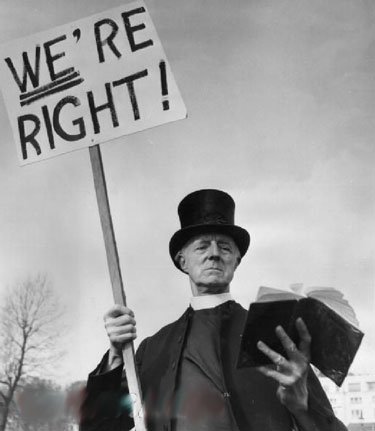Leftie Journalist Begins to Appreciate Her Country Club Republican Parents
Baby Boomers, Connecticut, Social Justice Warriors, Values, WASPs
Pamela Constable is a Washington Post correspondent and a typical traitor-to-her-class Baby Boomer, who grew up in WASP-y, privileged Connecticut only to rebel against her parents’ values and become a Social Justice Warrior Holier-Than-Thou. Now, rather late in the game, she is beginning to understand that her parents sacrificed and struggled without complaint to obtain for her the privileged life-style she so despised, and she is beginning to see that the old-fashioned WASP virtues of hard work, good manners, emotional restraint, and good taste have quite a lot to be said for them.
My childhood was a cocoon of tennis and piano lessons, but once I reached my teens, disturbing news began filtering in from the world beyond. An alumna of my elementary school gave an impassioned speech about her summer registering black voters in the South. At boarding school, a current-events teacher introduced me to McCarthyism and apartheid, and I watched the funeral of Martin Luther King Jr. Filled with righteous indignation, I memorized Bob Dylan songs about poverty and injustice and vowed to become a crusading journalist. Above my study carrel, I taped the famous journalistic directive to “comfort the afflicted and afflict the comfortable.â€
The most convenient target I could afflict was my parents, who seemed more worried about their daughter turning into a hippie than about a world full of rampant wrongs. I wrote them earnest letters railing against capitalism, country clubs and colonial exploitation. I accused them of being snobs and racists and scoffed at their preoccupation with appearance. If they were hurt or offended, they never let it show, in part because I kept getting A’s and dutifully stood through numerous fittings for my debutante dress.
I hardly saw my parents during my four years at Brown, a tumultuous time that included the bombing of Cambodia and the resignation of Richard Nixon. Soon after graduation I was gone, immersed in big-city newspaper work. I spent a decade writing about alcoholics and juvenile delinquents and slumlords. Eventually my reporting took me even farther afield, to impoverished or war-torn countries such as Haiti and Chile, India and Afghanistan. It was an adventuresome and stimulating career, but it was also a kind of private atonement for having grown up amid such privilege. I rarely told anyone where I was from.
Over time, my relations with my parents settled into a long-distance detente that was affectionate but formal. We sent each other thank-you notes and avoided talking about politics. Yet even though I had run as far from Connecticut as I could, every time I called from another war zone or refugee camp, they always asked eagerly, “When might we see you again?†The guest room was always waiting, with a few ancient stuffed animals on the pillow.
Still, it was only after witnessing the desperation and cruelty of life in much of the world that I began to reexamine my prejudices against the cloister I had fled. In some countries, I saw how powerful forces could keep people trapped in poverty for life; in others, how neighbors could slaughter each other in spasms of hate. I met child brides and torture victims, religious fanatics and armed rebels. I explored societies shattered by civil war, upended by revolution, and strangled by taboo and tradition.
Visiting home between assignments, I found myself noticing and appreciating things I had always taken for granted — the tamed greenery and smooth streets, the absence of fear and abundance of choice, the code of good manners and civilized discussion. I also began to learn things about my parents I had never known and to realize that I had judged them unfairly. I had confused their social discomfort with condescension and their conservatism with callousness.
Read the whole thing.




